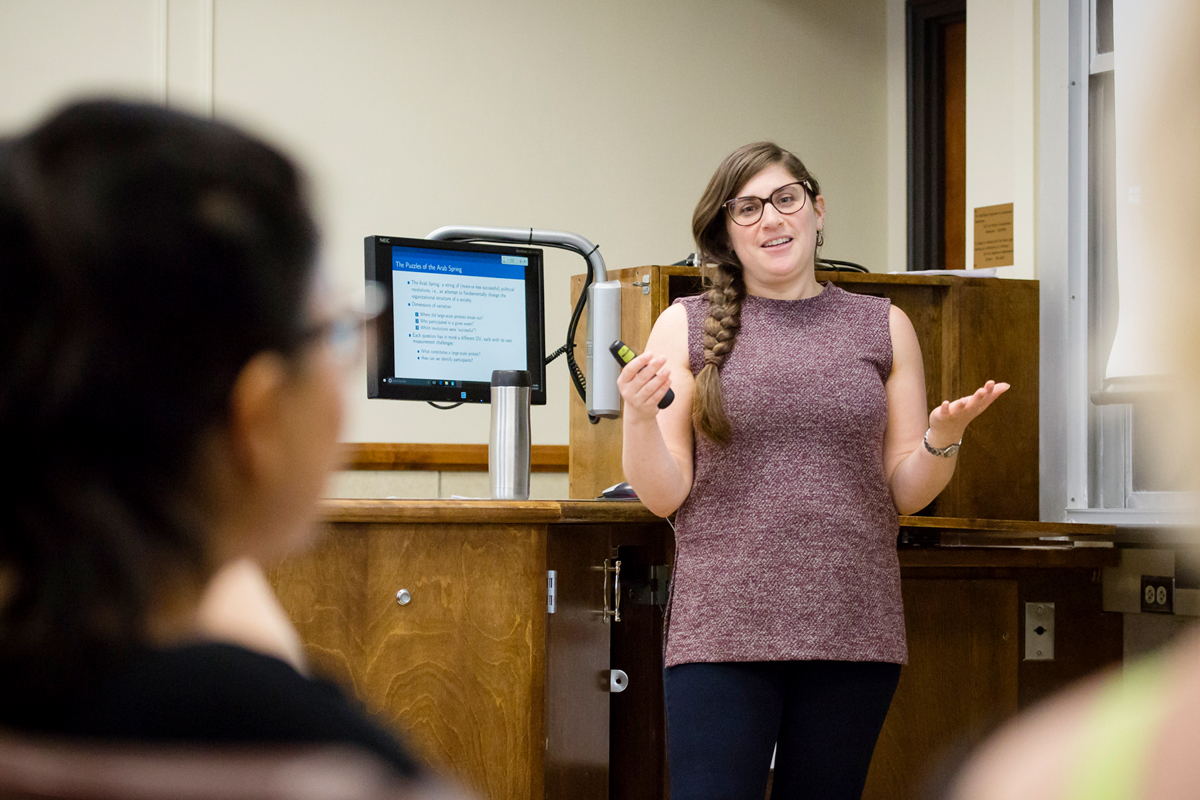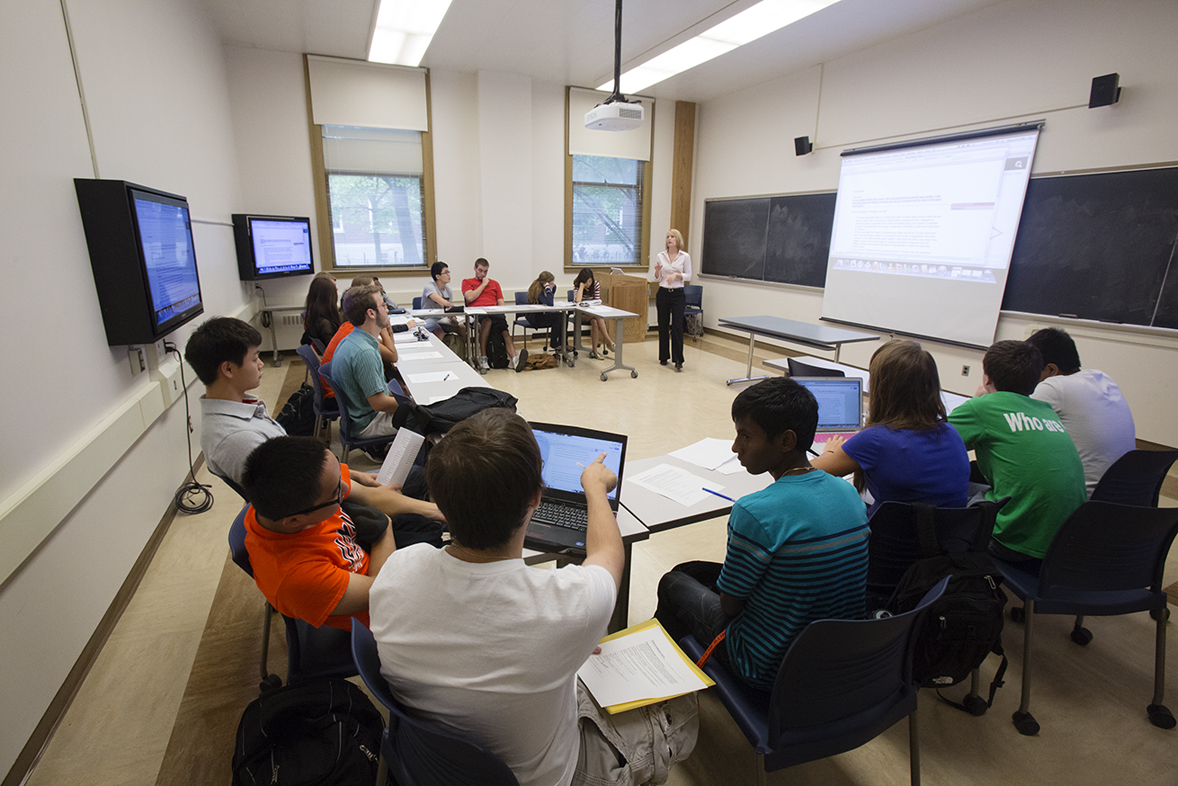Learning and Education Studies
This curriculum prepares individuals for positions requiring expertise in formal and non-formal learning and educational settings that do NOT require licensure (becoming a licensed teacher). Students interested in becoming a licensed teacher should consider the licensure program in the majors of Middle Grades Education, Elementary Education, Early Childhood Education, or Special Education.
A minimum of 120 semester hours is necessary for graduation in the Learning and Education Studies program. Students will spend much of the first two years with general education courses, achieving a solid preparation in the humanities, social and natural sciences, technology and mathematics. In the final two years of the major, students will take a set of core courses, as well as coursework in one of the following concentrations: 1) Applied Learning Science; 2) Educational Equality and Cultural Understanding; 3) Workplace Training and Development; or 4) Digital Environments for Learning, Teaching and Agency.
Four area of concentration are offered this non-licensure degree:
Prepares students to explore theories and methods in the learning sciences and identify principles of learning and how to apply them, how to design and evaluate learning environments and materials, and acquire flexible learning and problem-solving skills.
Prepares students to understand the historical place of education in challenging inequality and the role of education in fostering human rights, work in the United States and international educational settings to develop policies that improve educational opportunities, and consult in organizations where an expertise in diversity is required.
Prepares students to develop, deliver, and evaluate training programs across workplace settings, improve organizational performance, and lead task analysis and program design initiatives in human resource development departments.
Prepares students to design, develop, and utilize digital technologies for a diverse range of educational settings, deploy appropriate technology to support the educational goals of corporations or informal learning environments, consider the social, cultural, emotional, and cognitive impacts of implementing digital technologies in learning environments.
- EPS 201—Foundations of Education
- SPED 117—The Culture of Disability
Students should consult with an academic advisor regarding course selection prior to the advanced registration period.
A degree in Learning and Education Studies will be prepare you for work in training and program development units, international schools, private and alternative schools, non-government organizations (NGOs), and other education-related positions in agencies, business, and government.
- Analyzing
- Communication
- Critical Thinking
- Decision Making
- Directing
- Evaluating
- Explaining
- Instructing and Training
- Interpreting
- Organizing and Coordinating
- Planning
- Research
- Affirmative action program assistant
- Assessment specialist
- Career and technical education teacher
- Consultant
- Diversity manager
- Diversity recruiting manager
- Diversity trainer
- Educational media designer/developer
- Education or operations data analyst
- Educational technologist
- eLearning or online training specialist coordinator
- Equal employment opportunity compliance manager
- Human resource development specialist
- Instructional designer
- Instructional services
- Instructional technologist
- Instructional technology/design coordinator
- Learning coordinator
- Program evaluator
- Research/project coordinator
- Simulation or game designer/developer
- Technology coordinator for school/district
- Training and development specialist
- Training curriculum designer
- University admissions counselors
Some careers may require education beyond an undergraduate degree.
- Participating in undergraduate research
- Applying for a study abroad experience
- Utilizing resources of The Career Center
- Joining a Registered Student Organization (RSO) related to this major, such as:
- Epsilon Delta Professional Teaching Organization: informs and involves future teachers in the changing field of education.
- Student Education Association: provides pre-professional educational development for future teachers.
- The Minority Association of Future Educators (MAFE): mission is to provide a support network for underrepresented students seeking to become professional educators and to address the educational needs of children, with an emphasis on children from underrepresented groups.
There are several professional organizations dedicated to Learning and Education Studies. Their websites might be able to provide a glimpse in the world of Learning and Education Studies. These organizations include American Association of School Administrators, National Education Association, and National Council for Accreditation of Teacher Education.


